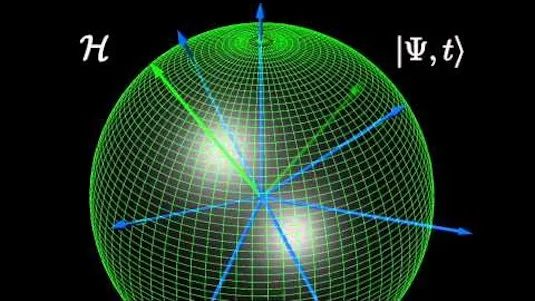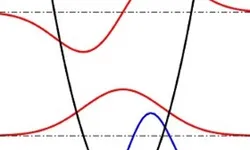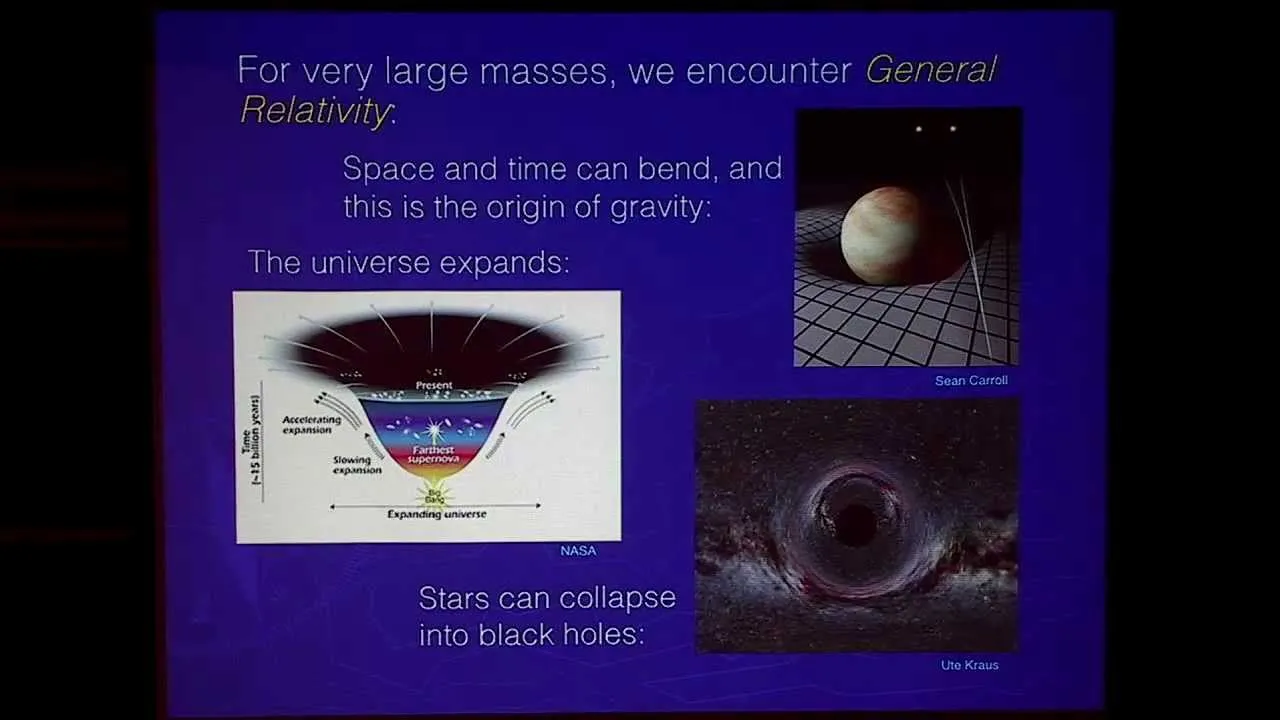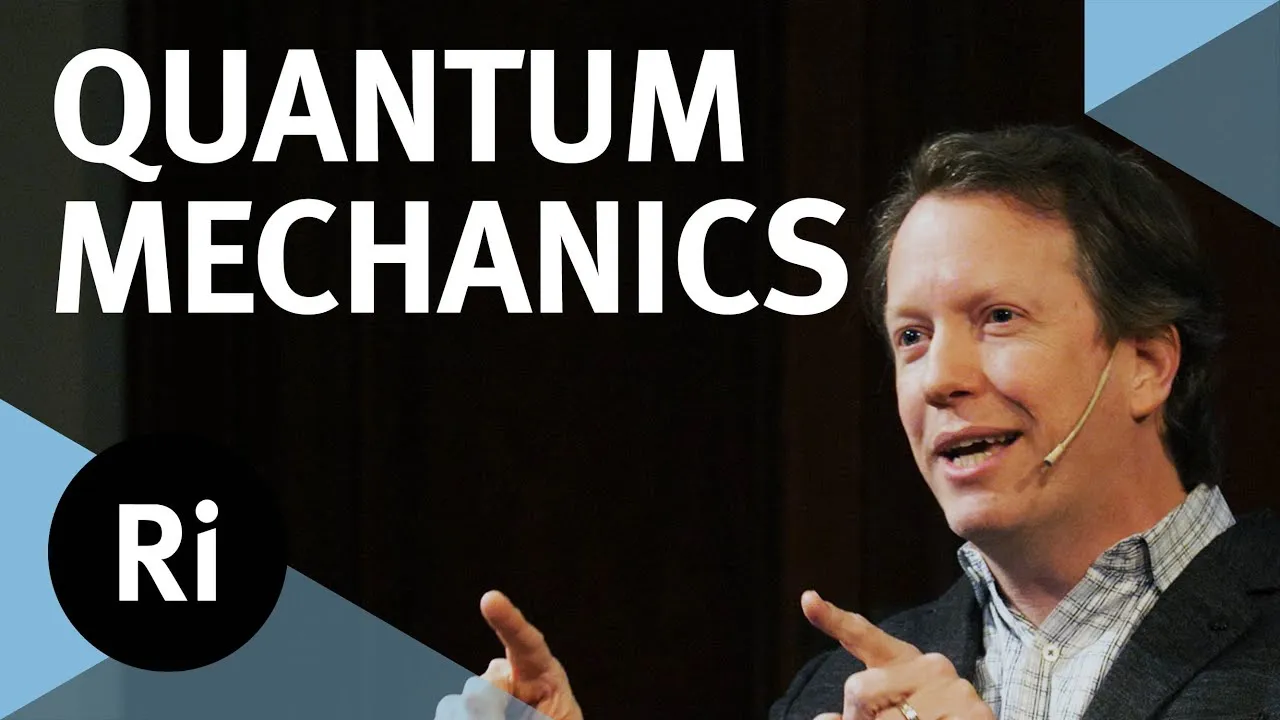
Mastering Quantum Mechanics Part 2: Quantum Dynamics 
This course explores the dynamics of quantum mechanics, including Heisenberg's uncertainty principle and compatible operators. Students will gain an understanding of the Schrodinger and Heisenberg pictures of quantum mechanics, as well as coherent and squeezed states of the harmonic oscillator. The course also covers the application of these concepts to various physical systems. ▼
ADVERTISEMENT
Course Feature
![]() Cost:
Cost:
Free
![]() Provider:
Provider:
Edx
![]() Certificate:
Certificate:
No Information
![]() Language:
Language:
English
![]() Start Date:
Start Date:
18th Apr, 2018
Course Overview
❗The content presented here is sourced directly from Edx platform. For comprehensive course details, including enrollment information, simply click on the 'Go to class' link on our website.
Updated in [March 06th, 2023]
This course, Mastering Quantum Mechanics Part 2: Quantum Dynamics, is the second of three courses offering a sophisticated view of quantum mechanics and its proper mathematical foundation. It covers Heisenberg’s uncertainty principle and the concept of compatible operators, the Schrödinger and Heisenberg pictures of quantum mechanics, the coherent and squeezed states of the harmonic oscillator, two state systems and their applications to NMR and masers. Learners should have taken Mastering Quantum Mechanics Part 1: Wave Mechanics to understand the material in this course. Upon completion of the 3-part Quantum Mechanics series, learners will have the necessary foundation to pursue advanced study or research at the graduate level in areas related to quantum mechanics. This course follows MIT’s on campus 8.05, the second semester of the three-course sequence on undergraduate quantum mechanics, and is equally rigorous. Learners have praised the course for its quality and rigor, with one learner stating that it is “#1 and I suspect will stay that way for some time to come.”
[Applications]
Upon completion of Mastering Quantum Mechanics Part 2: Quantum Dynamics, learners will have a strong foundation to pursue advanced study or research at the graduate level in areas related to quantum mechanics. They will also have the necessary knowledge to take MIT's on campus 8.05, the second semester of the three-course sequence on undergraduate quantum mechanics. Learners will have the confidence to study topics on their own and evaluate their understanding on a high quality international platform.
[Career Paths]
Recommended career paths for learners of this course include:
1. Quantum Computing Engineer: Quantum computing engineers are responsible for developing and maintaining quantum computing systems. They must have a deep understanding of quantum mechanics and be able to apply it to the development of new technologies. This field is rapidly growing and is expected to continue to expand as quantum computing becomes more widely adopted.
2. Quantum Physicist: Quantum physicists are responsible for researching and developing new theories and technologies related to quantum mechanics. They must have a deep understanding of the principles of quantum mechanics and be able to apply them to the development of new technologies. This field is rapidly growing and is expected to continue to expand as quantum computing becomes more widely adopted.
3. Quantum Information Scientist: Quantum information scientists are responsible for researching and developing new theories and technologies related to quantum information. They must have a deep understanding of the principles of quantum mechanics and be able to apply them to the development of new technologies. This field is rapidly growing and is expected to continue to expand as quantum computing becomes more widely adopted.
4. Quantum Engineer: Quantum engineers are responsible for designing and developing new technologies related to quantum mechanics. They must have a deep understanding of the principles of quantum mechanics and be able to apply them to the development of new technologies. This field is rapidly growing and is expected to continue to expand as quantum computing becomes more widely adopted.
[Education Paths]
Recommended Degree Paths:
1. Bachelor of Science in Physics: This degree program provides students with a comprehensive understanding of the fundamental principles of physics, including quantum mechanics. Students will learn about the laws of motion, energy, and matter, as well as the principles of quantum mechanics. This degree is ideal for those interested in pursuing a career in physics or related fields.
2. Master of Science in Quantum Mechanics: This degree program provides students with an in-depth understanding of the principles of quantum mechanics. Students will learn about the mathematical foundations of quantum mechanics, the Schrödinger and Heisenberg pictures, and the applications of quantum mechanics to various fields. This degree is ideal for those interested in pursuing a career in research or academia.
3. Doctor of Philosophy in Quantum Mechanics: This degree program provides students with an advanced understanding of the principles of quantum mechanics. Students will learn about the mathematical foundations of quantum mechanics, the Schrödinger and Heisenberg pictures, and the applications of quantum mechanics to various fields. This degree is ideal for those interested in pursuing a career in research or academia.
Developing Trends:
1. Quantum Computing: Quantum computing is an emerging field that is rapidly gaining traction. It involves the use of quantum mechanics to solve complex problems that are beyond the capabilities of traditional computers. This field is expected to continue to grow in the coming years, and those with a degree in quantum mechanics will be well-positioned to take advantage of this growth.
2. Quantum Sensors: Quantum sensors are devices that use quantum mechanics to measure physical properties such as temperature, pressure, and magnetic fields. These sensors are becoming increasingly popular, and those with a degree in quantum mechanics will be well-positioned to take advantage of this trend.
3. Quantum Materials: Quantum materials are materials that exhibit quantum mechanical properties. These materials are being used in a variety of applications, such as quantum computing and quantum sensing. Those with a degree in quantum mechanics will be well-positioned to take advantage of this trend.
Course Provider

Provider Edx's Stats at AZClass
Discussion and Reviews
0.0 (Based on 0 reviews)
Explore Similar Online Courses

GRE Vocab Wednesdays

How to Create Paper Art in Procreate: From Sketch to Final Piece (Free Brushes & Files)

Python for Informatics: Exploring Information

Social Network Analysis

Introduction to Systematic Review and Meta-Analysis

The Analytics Edge

DCO042 - Python For Informatics

Causal Diagrams: Draw Your Assumptions Before Your Conclusions

Whole genome sequencing of bacterial genomes - tools and applications

Foundations of Quantum Mechanics

Gravity and Quantum Mechanics - The Quest for Unification

A Brief History of Quantum Mechanics - with Sean Carroll
 Related Categories
Related Categories
 Popular Providers
Popular Providers
Quiz
 Submitted Sucessfully
Submitted Sucessfully
1. What is the name of the course?
2. What is the prerequisite for this course?
3. What is the signature course in MIT's physics program?
4. What is the name of the third course in the Quantum Mechanics series?
Correct Answer: Part 3: Entanglement and Angular Momentum


Start your review of Mastering Quantum Mechanics Part 2: Quantum Dynamics